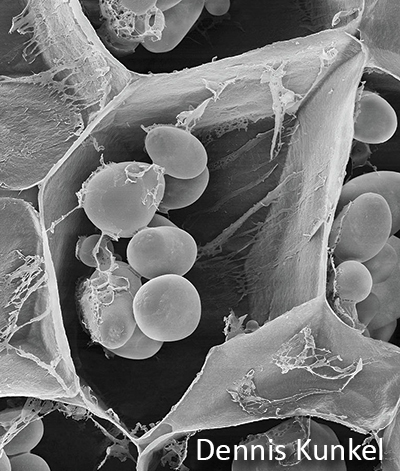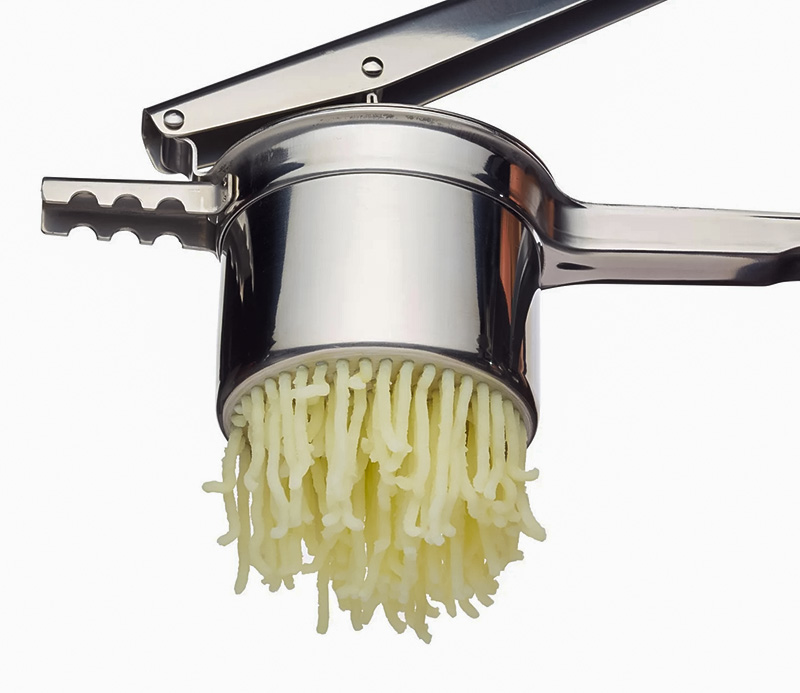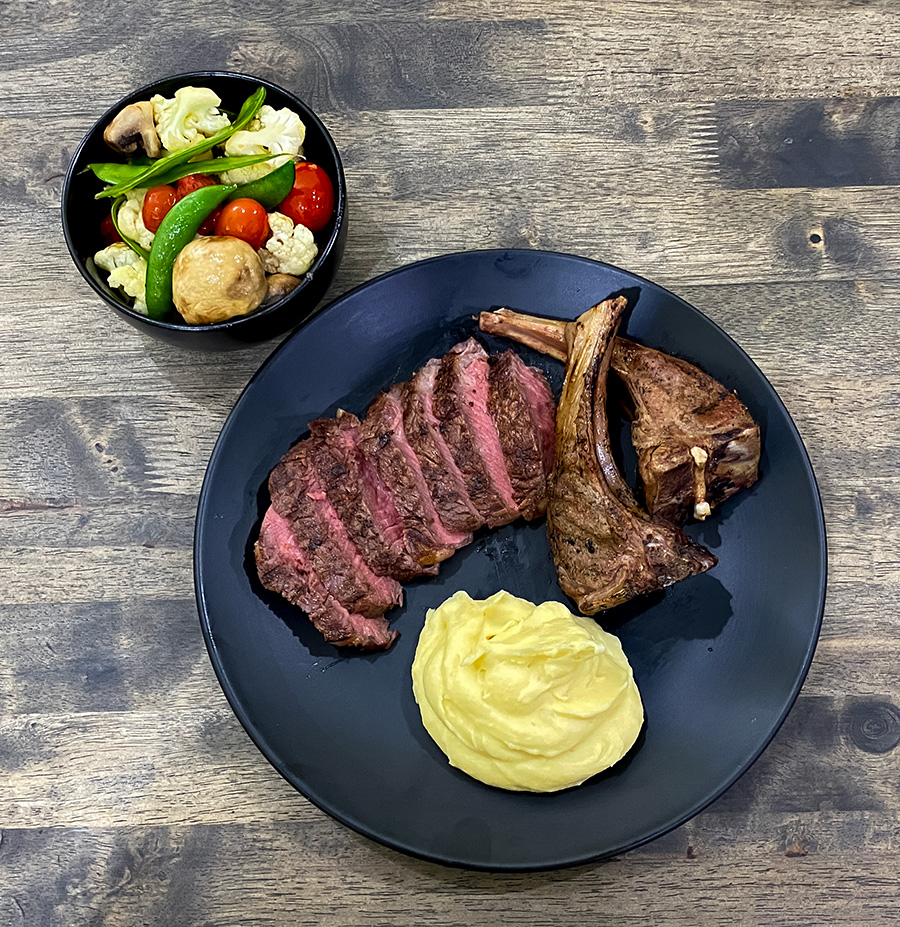Clem's Pomme Purée
(The
most Michelin star awarded chef's recipe)
The internet is full of advice about how to make the best mashed potato. I have made many variations of this culinary item myself but never tried making it the French way, in particular, using the recipe of the most Michelin star awarded chef, Joel Robuchon. Made this way, mashed potato is decadently and atherosclerosis-inducing rich in butteriness. Do not eat this regularly.
The key to making good mashed potato is to liberate the potato starch granules (yes, the starch is packed inside granules which are practically insoluble) from the cellular structure of the potato tuber, without ever allowing the granules to release the starch within to hydrate and gelatinize (this is when the starch gels and the suspending liquid becomes sticky - as in making glue at school).

Potato granules seen inside cell
compartments in a tuber
Cooking at around 70 degrees centigrade breaks down the cell
structure of the potato tuber without much gelatinization.
INGREDIENTS (serves two)
- Potato variety good for
mashing (250 g)
- Softened unsalted butter cut
into small portions (100 g)
Robuchon used a 2:1 ratio meaning 250 g potato to 125 g butter.
- Warm cream and milk (as
required)
- A dash of salt
- A dash of whatever
else one likes for flavouring e.g. white pepper; herbs
METHOD
- Cover whole,
unskinned potatoes
in salted water.
Simmer at around 70 degrees centigrade for around an hour (depending on the size of the potatoes).
The potatoes should be done when one will fall away from a knife stuck into it.
You want the potato just cooked.
Remove the potatoes from the water.
- Perform the next
steps while the potatoes are still warm/hot.
It is also essential to not bring water along with the potatoes.
- Peel the potatoes.
The skin should come off easily.
- Pass the potatoes
through a potato riser

or press the potatoes through a fine sieve with a spatula.
- An optional next step is
to "dry" the riced potato by stirring it for a few minutes
in a saucepan.
- Add the softened
butter portions in stages to the riced potato, stirring well
between each addition until well mixed in.
What is being built is a butter/potato granules emulsion.
- Add in warm cream
and hot milk in amounts to taste and until a soft, smooth
purée
is achieved.
Using warm cream and/or milk helps maintain the butter/potato emulsion.
The added liquid should result in a very soft (almost flowable) purée.
- Add salt and other
flavourings to taste.
- For ensured
smoothness, you may pass the purée
through the fine sieve another time.
- Enjoy!

Pomme purée
served with ribsteak, lamb cutlets and buttered vegetables